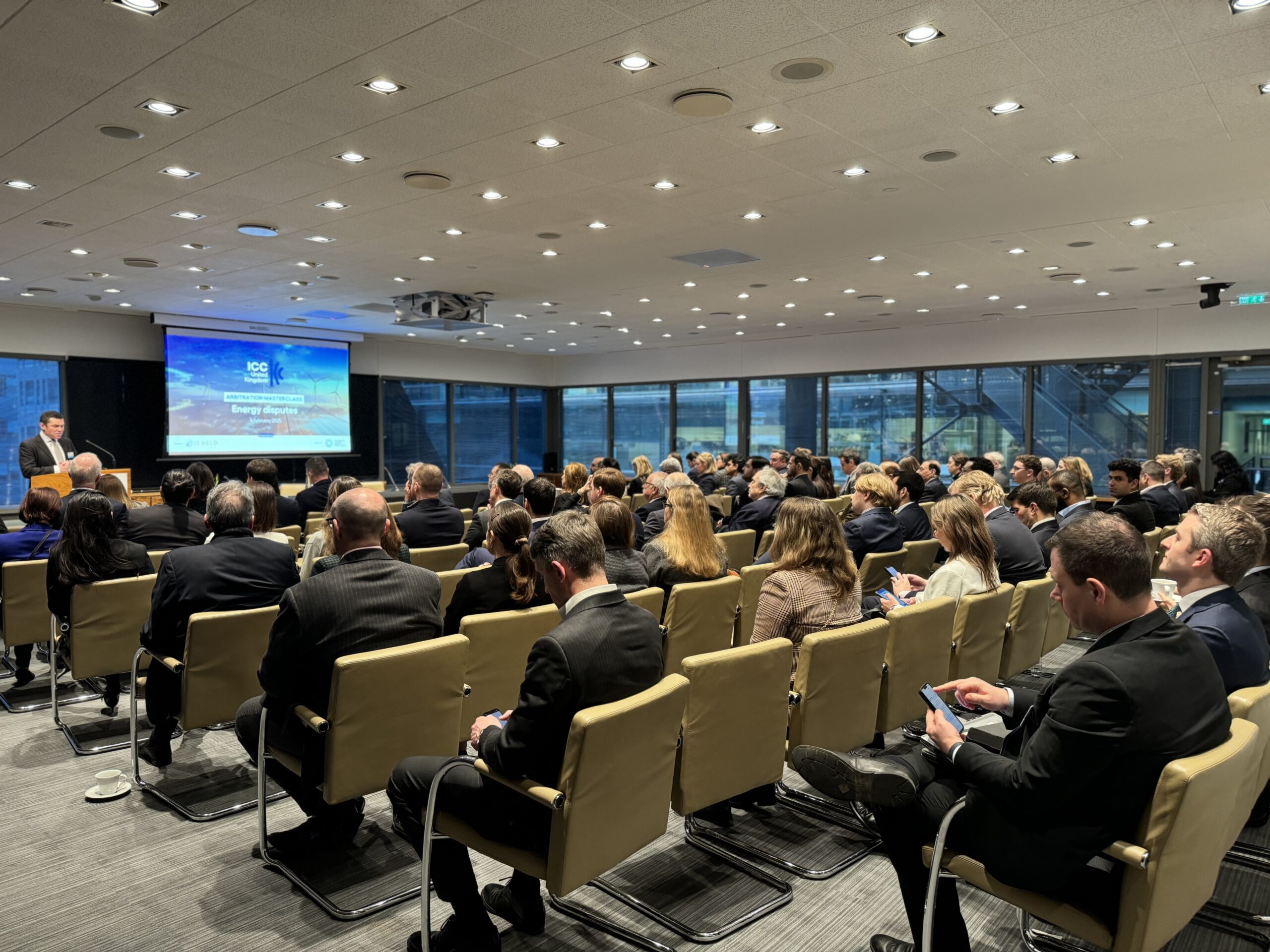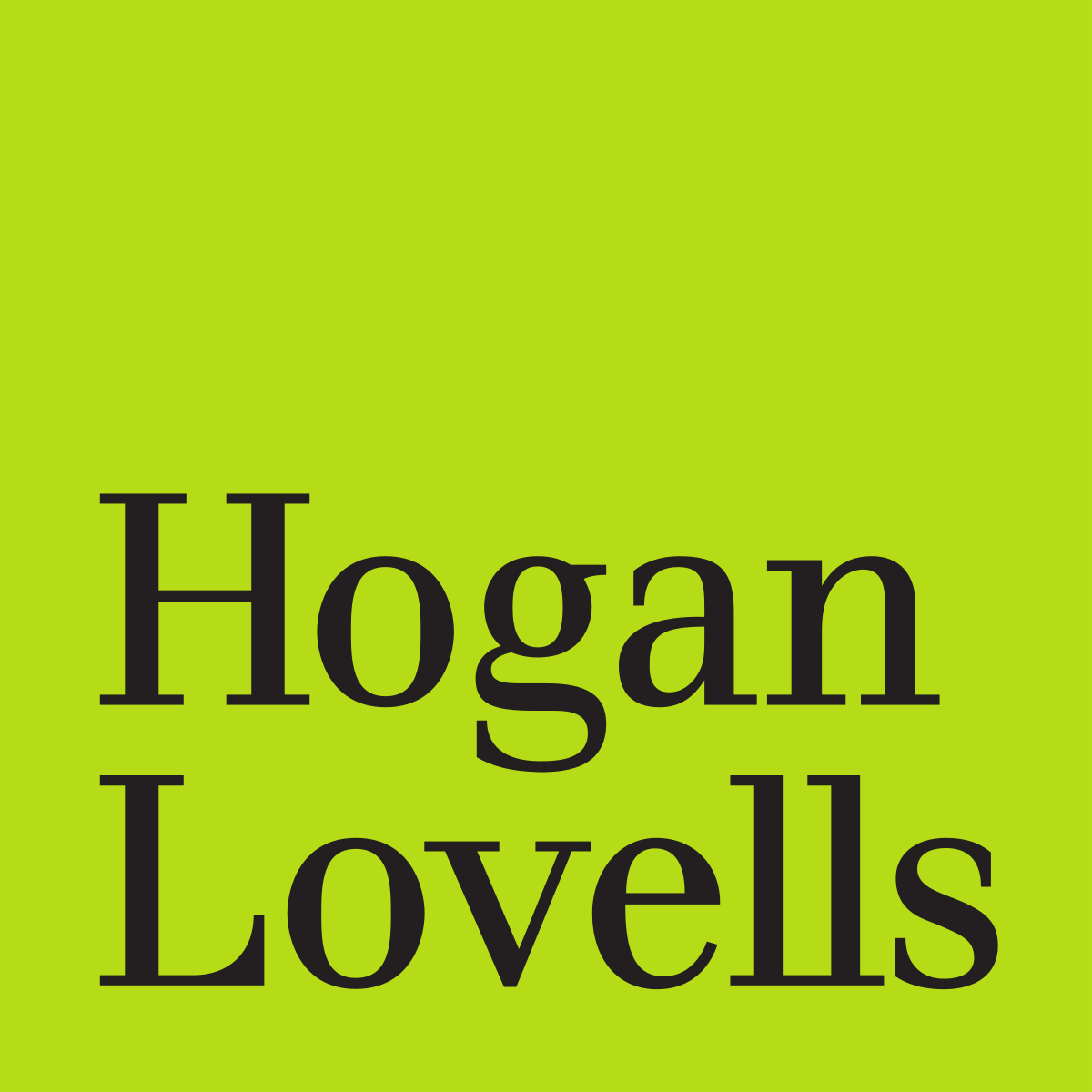Dispute Resolution: The Economic Perspective
Join us for the ICC United Kingdom Annual Arbitration & ADR Conference: Dispute Resolution – The Economic Perspective on 11–12 November 2025, combining a virtual Day 1 and in-person Day 2 at Hogan Lovells in London.
This flagship event brings together leading legal practitioners, funders, corporates, and government representatives to explore how today’s economic and geopolitical forces are transforming international dispute resolution.
Sessions will delve into the cost and funding of arbitration, navigating sanctions and state risk, evolving standards around fraud and corruption, and the quantification of climate and transition-related damages.
Featuring keynote addresses, expert panels, and a client fireside chat, the conference provides a strategic platform to engage with the most pressing issues impacting arbitration today — alongside unparalleled networking with senior decision-makers and thought leaders from across the field.
Read our Key Takeaways Here: https://iccwbo.uk/wp-content/uploads/2025/11/ICCUK-Arbitration-and-ADR-2025-key-takeaways-v2.pdf
Young Arbitration & ADR Forum (YAAF) –
Unpacking the New Arbitration Act: What’s Next?
The UK Arbitration Act 2025 marks a pivotal moment in the evolution of English arbitration law. Building on the robust foundation of the 1996 Act, the new legislation introduces targeted reforms aimed at enhancing efficiency, transparency, and legal certainty. Key changes include a statutory rule on the governing law of arbitration agreements, express powers for summary disposal, expanded court support for arbitration, and codified duties of disclosure for arbitrators.
This ICC YAAF session brings together a dynamic panel of rising arbitration practitioners to explore the practical implications of the new Act and what lies ahead for arbitration in England and Wales. The discussion will delve into how these reforms may reshape procedural strategies, tribunal powers, and the role of English courts in arbitral proceedings.
Moderator: Srishti Jain, Humphries Kerstetter
Panellists:
- Isuru Devendra, 36 Stone
- Caitlin Lloyd, Simmons & Simmons
- Imogen Jones, DAC Beachcroft
- Marcus Price, Reed Smith
Early Determination
Early determination is a vital tool for fast, efficient and cost-effective resolution disputes. Our panellists will discuss the framework for Early Determination in arbitration, its use in practice and its future direction.
Moderator: Nathan Searle, Partner, Hogan Lovells
Panellists:
- Paul di Pietro, Counsel, ICC International Court of Arbitration
- Philippa Charles, Twenty Essex
- Sarah Green, Newmans Row
Registration
Arrival teas & coffees
Welcome remarks
- Guy Pendell, Partner, CMS, and Chair of the ICC United Kingdom Arbitration & ADR Committee
- Kieron O’Callaghan, Partner, Hogan Lovells
Keynote address: The UK and the international legal order in a shifting geopolitical landscape
- The Rt Hon Lord Richard Hermer KC, Attorney General for England and Wales
The geopolitical economy and arbitration
International arbitration today sits at the crossroads of law, politics and business. Sanctions, trade measures, supply chain shocks and regulatory change are creating new risks and reshaping how disputes are fought and resolved. This panel will bring together leading practitioners to discuss how international arbitration is adapting to these changes, what recent cases and trends tell us, and what parties should keep in mind when drafting contracts or pursuing claims. The discussion will move beyond sanctions alone to cover wider economic and geopolitical pressures, offering practical insights for anyone involved in cross-boarded disputes.
Moderator: Samantha Rowe, Partner, Debevoise, and Vice-Chair of ICC United Kingdom Arbitration and ADR Committee
Panellists:
- James McGlaughlin, McDermott Will & Schulte
- Clare Connellan, Partner, White & Case
- Jayne Whymark, Director of Legal, E&S and Compliance, UK Export Finance
- Katherine Young, Legal Counsel, Global Litigation, Shell International Limited
- Lucas Bastin KC, Essex Court Chambers
Networking break
Arbitral economics: Is third party funding a game-changer or a Pandora’s Box?
As the costs of international arbitration continue to attract scrutiny, is third party funding a solution, or a Pandora’s Box? This panel – featuring views from practitioners, funders and arbitrators – will take a deep dive into costs and funding, including a review of how arbitral institutions and the UK government via the CJC review are tacking the issue.
Moderator: Ned Beale, Partner, Hausfeld
Panellists:
- Leilah Bruton, Partner, Three Crowns
- Geoff Nicholas, Managing Director, Buford Capital
- Audley Sheppard KC, Twenty Essex
- Omar Tahir, Kings Chambers
Chair Remarks and Jus Mundi’s Hackathon Winner Announcement
- Lord Karan Bilimoria CBE, DL, Chairman of ICC United Kingdom
- Monica Crespo, Head of Product, Jus Mundi
Lunch break and networking
Unconventionality in quantifying damages in the age of geopolitical instability and the energy transition
The huge sums in damages that are often awarded in international arbitration have contributed to the controversy surrounding many recent high-profile cases. Tribunals’ approaches to causation, mitigation, quantification, and other factors determining the level of damages, often follow established conventions. This might mean that damages do not accommodate the possibility of legitimate policy change during the life of a contract.
This panel will examine questions which have been raised about loss and damages calculation methods, and look at innovative and unconventional approaches and how they might be used to address concerns about imbalance between investors’ rights and states’ evolving policy frameworks.
Moderator: Duncan Bagshaw, Partner, Norton Rose Fulbright and Vice Chair of the ICC United Kingdom Arbitration & ADR Committee
Panellists:
- Shivani Sanghi, Partner, Bryan Cave Leighton Paisner
- Sanaa Babaa, Director, Forensic & Integrity Services EY
- Judy Fu, Barrister, 3VB
- Tom Robinson, Senior Managing Director and Economist, Ankura
- Elisa Mariscal, Principal, Cornerstone Research
Networking break
Recommendations of preliminary findings of the ICC Task Force ‘Addressing Issues of Corruption in International Arbitration’
The ICC Task Force on Corruption in Arbitration is shortly to release its (currently working titled) Umbrella Document summarising the important work carried out by the Task Force and unveiling a series of recommendations.
In this panel session, the co-Chair of the Task Force and the Secretary to the ICC Commission on Arbitration & ADR will introduce those recommendations, provide an overview of the work of the Task Force within the structure of the Umbrella Document and have an open discussion with representatives of the arbitration, in house and judicial communities.
Moderator: Ian Meredith, Partner, K&L Gates
Panellists:
- Dr Hélène van Lith, Secretary to the ICC Commission on Arbitration & ADR, International Court of Arbitration, ICC
- Sophie Nappert, ICC Task Force on Corruption Co-Chair
- Nick Kling, UK General Counsel, Arcelor Mittal
- Annabel Maltby, Partner, Hogan Lovells
Conference close
- Guy Pendell, Partner, CMS, and Chair of the ICC United Kingdom Arbitration & ADR Committee
Networking Drinks Reception




